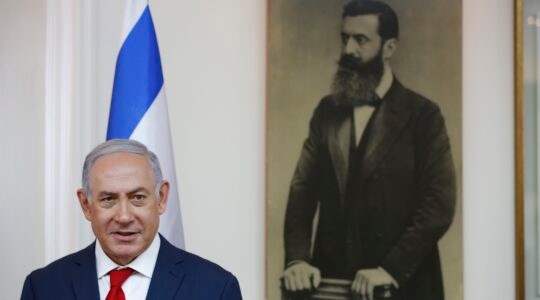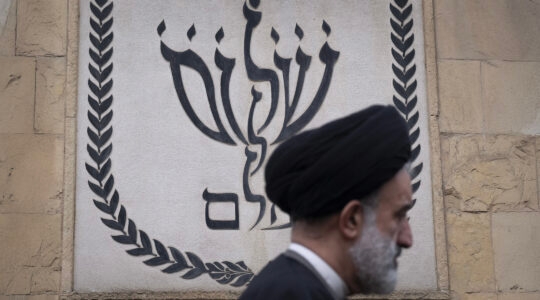BERLIN (JTA) — The German soldier whose acts of defiance in helping Jews was made famous in "The Pianist" was honored posthumously in Berlin.
Wilhelm Hosenfeld, who died in 1952 in a Soviet prison, was honored Friday in ceremonies hosted by the Israeli Embassy and Jewish Museum. Three of his five children attended the presentation of the Righteous Among the Nations award from Yad Vashem, Israel’s Holocaust memorial.
The Roman Polansky film about the dramatic survival in hiding of Waldislaw Szpilman in Nazi-occupied Warsaw spotlighted Hosenfeld’s heroism. Szpilman’s son, Andrej, who was at the ceremony, still speaks with amazement about Hosenfeld’s defiance of the authorities.
"It was winter, minus 20 degrees, and he discovered my father in hiding and helped him," Szpilman said.
Hosenfeld, a Wehrmacht soldier, also provided false identity papers and a job to Leon Warm, a Jewish man who had escaped a deportation train to Treblinka.
Based on testimony from the two men, Hosenfeld was recognized last November by Yad Vashem.
Although Hosenfeld had joined the Nazi Party in 1935, he soon became deeply critical of the regime and its treatment of the Jews and Poles. Following the brutal suppression of the Warsaw Ghetto uprising, he wrote in his diary that the "horrible mass murder of the Jews" would end up being the downfall of the Nazi regime.
Hosenfeld kept his treasonous diary with him at all times, finally mailing it home to Germany.
Andrej Szpilman, a doctor in Poland, recalled that a patient once reported that his "neighbor was in the Soviet prison with Hosenfeld on the Volga River. And he did not like [Hosenfeld] because he helped Jews."
Some rescuers have never been recognized, Szpilman noted, because they are still afraid to talk openly about what they did.
JTA has documented Jewish history in real-time for over a century. Keep our journalism strong by joining us in supporting independent, award-winning reporting.





